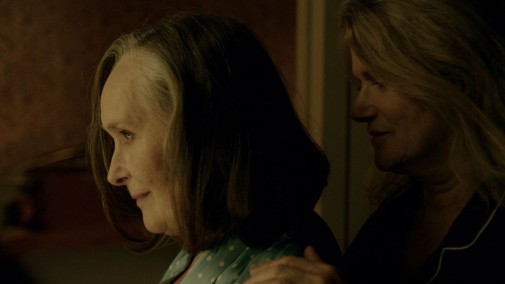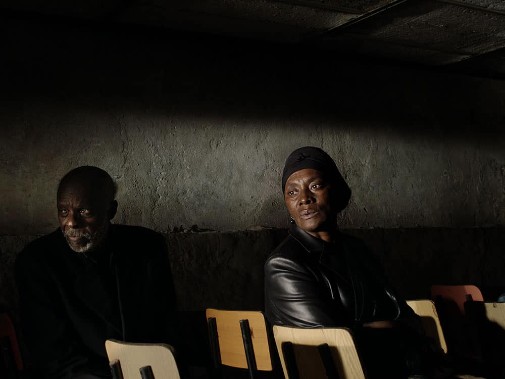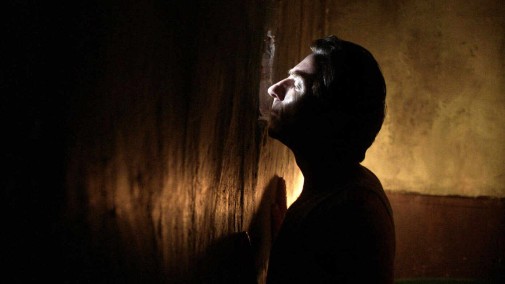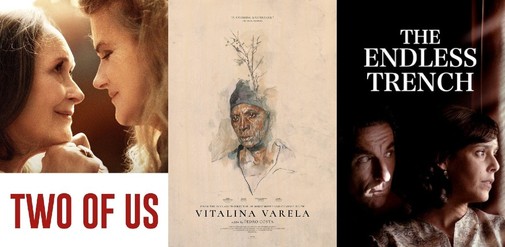Europe is the most represented continent in the history of the Best International Feature Oscar. However, while some of its countries are regularly honored, others have been submitting for decades without luck. France, for instance, is the reigning champion of the category, having been nominated forty times. In contrast, Portugal - my country – holds the record for the most submissions without a single nod. For this chapter in our trip through world cinema, we arrive at these two nations' 2020 submissions as well as Spain's Netflix contender…

TWO OF US (France)
The closet is a poisonous thing, corroding the mind and spirit. One's true self becomes a secret while what the outside sees is a strenuous performance. Madeleine has been living in that hell for decades, hiding the love of her life from her adult children, pretending to be friendly neighbors with her paramour instead of committed lovers. Her partner, Nina, is tired of the deception and, one day, finally explodes. What follows is a series of tragic misfortunes that put the couple's unity to the test, their lives separated by disease, familial hostilities, and the mercilessness of time. Formalistically, Filippo Meneghetti isn't reinventing the wheel, though the picture's subdued naturalism works fine for the narrative at hand. Attention should be paid to the details of production design, for they bring some sophistication to the visual storytelling. Thankfully, as Two of Us is a film focused on performance, the actors deliver exquisite characterizations with special praise reserved for the two leads. Martine Chevalier makes Madeleine's silence heartbreakingly expressive, while Barbara Sukowa's Nina is a volcanic eruption of powerless rage, fiery indignation, heroic rebellion. The two thespians even manage to work their way around the plot's contrivances, injecting humanity into every harrowing scene they share in Two of Us. B

VITALINA VARELA (Portugal)
Since 1997's Ossos, Pedro Costa's cinema has been plunged into darkness, deep shadows taking over his every film. Over the years, the work has started to look more like hallucinatory phantasmagoria instead of a document of urban decay, its Expressionistic style and Neorealist ethos battling it out in severe tableaux. Vitalina Varela is an apotheosis of these conflicting sides in Costa's cinema, taking his investigations about poetic austerity to new echelons of abstraction. This time, his camera is directed at a woman playing a fictional version of herself, a Cape Verdean widow coming to Lisbon to mourn her husband's death, he who had abandoned her in the African islands and tried to make it in Portugal's capital. As Vitalina delves into painful recollection and discoveries of marital betrayals, a priest, played by Costa's stalwart muse Venture, gives her a weak semblance of guidance. In the end, however, hers is an odyssey of introspection. It's a look inside into the mysteries of her scarred soul. Self-confrontation is taken to literal extremes as the conclusion nears and the membrane between dream and waking life becomes more porous than ever, the reality of the filmed faces coming into question. Beneath all these layers of defiant style, lyrical obfuscation, and a demandingly glacial pace, Vitalina Varela is oddly touching, its images as beautiful as they are haunting. From the deep darkness, the actors emerge as beacons, humanity shining through the void, looking for the light, for the warmth of the sun, for deliverance. B+

THE ENDLESS TRENCH (Spain)
During Franco's dictatorship, political dissidents were ruthlessly hunted by the authorities. Many disappeared, others died, victims of a tyrannical regime whose evils still reverberate through modern-day Spain. Directed by Jon Garaño, Aitor Arregi & Jose Mari Goenaga, The Endless Trench tells the story of one of those men who, upon the start of the Civil War, hides from Franco's army under the floor of his and his bride's humble home. As time goes by, he keeps hiding, living within the walls of his old father's house, keeping his family from enjoying a normal existence. Survivalist impetus sours into obsession, panic rots the mind into near madness and not even the brightest flame of love can hope to endure the smothering hand of fear. The domestic spaces, brilliantly designed by Pepe Domínguez del Olmo, gradually transform, over the decades, from a temple of salvation to a cramped prison. As the despair of the outside contaminates the inside, the character's souls bend to the pressure. History manifests as fractured set design, twisted relationships, shattered hopes. The structure, divided into neat chapters, is necessarily repetitive but one does start to get worn down by the cyclical nature of the dramatic beats. The actors try and do some impressive work, but they can't overcome the premise's inherent limitations or the exhausting running time. Part of the film's point is that feeling, so its makers deserve compliments for their craft, even if the result lacks modulation of tone. B-
As much as I'd love to predict Vitalina Varela as a likely nominee, Pedro Costa's aesthetic and narrative proposition feel way too outside the Academy's usual wheelhouse to make it to the shortlist without the help of the executive committee. Two of Us and, especially, The Endless Trench won't have such troubles. It wouldn't be surprising to see them get in. Portugal'll probably hold on to its record.
